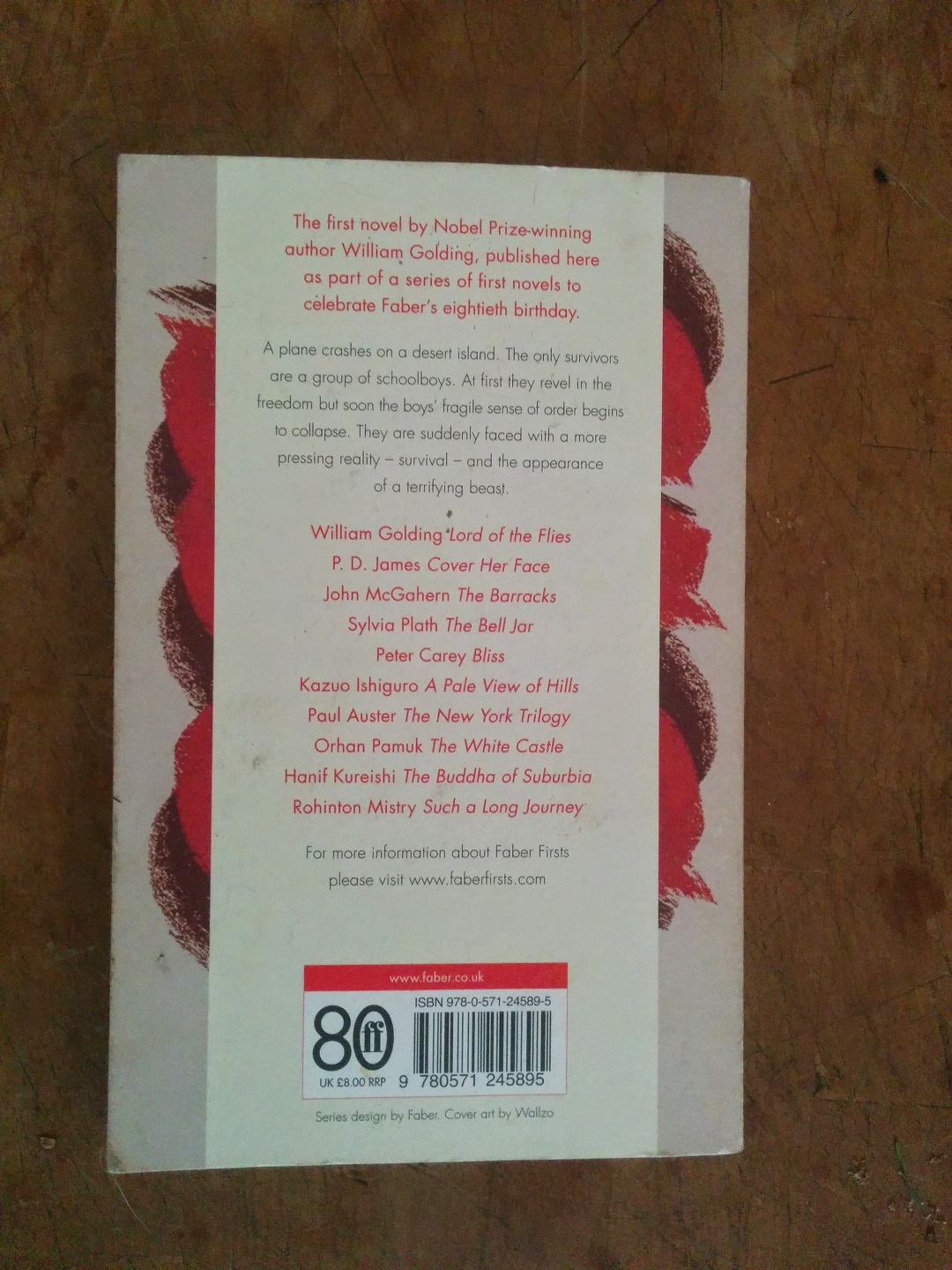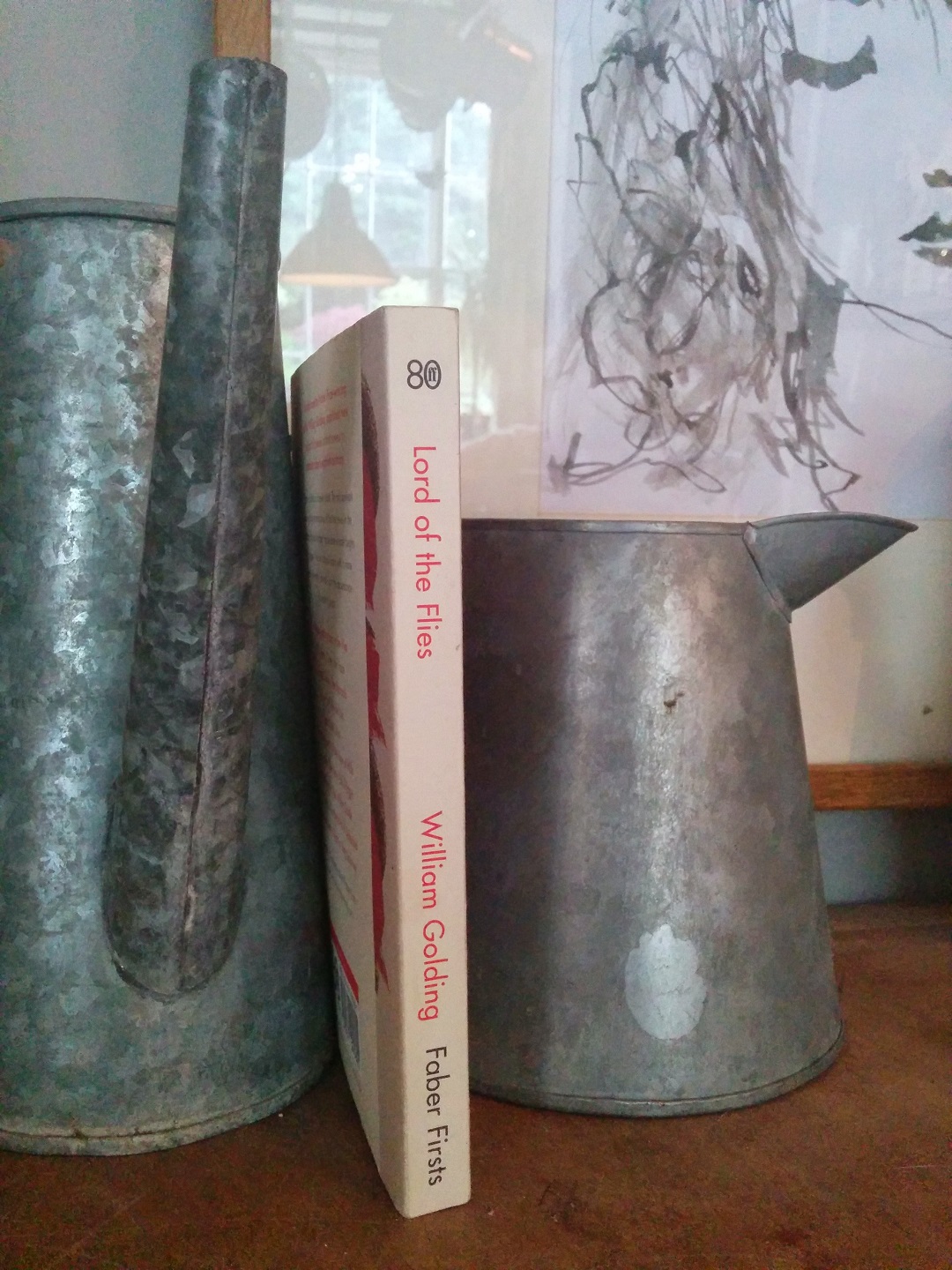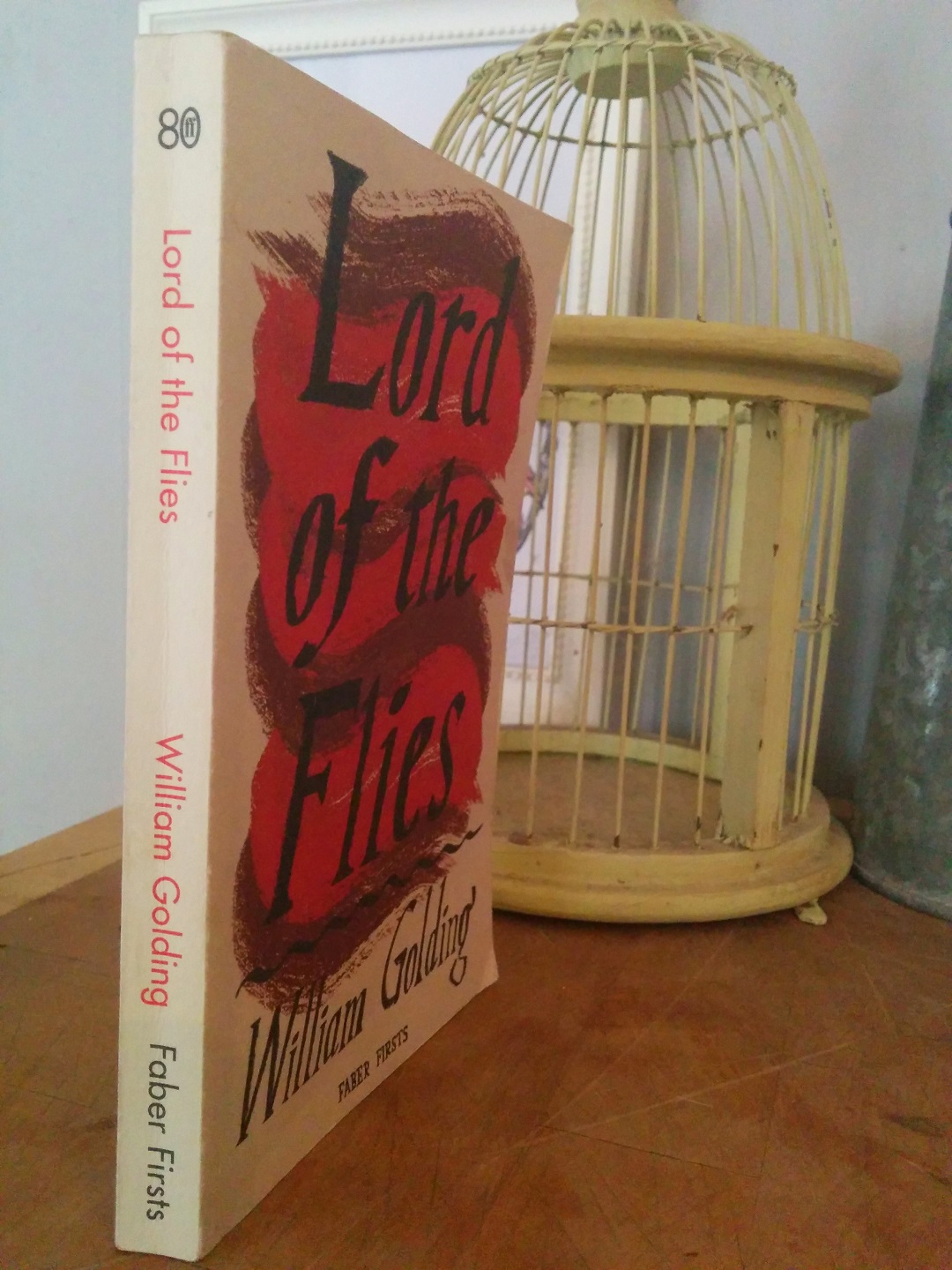Book Review – The Lord of the Flies, William Goulding
I was definitely a latecomer to this well known classic. Having never read it at school or college, it wasn’t until I found it lurking amongst the shelves of my favourite book-shop-come-quirky-pub in Falmouth, Beerwolf, that I decided it was about time I gave it a try. Being a reasonably short book, I thought it wouldn’t take long to get through but limited on time a few months ago, it had sat on my shelf for a long while waiting in the queue.
To tell you the truth, it surprised me. I vaguely knew bits about the storyline before I started from years of hearing snippets about lots of different classics, but this one was more modern and harrowing than I expected. In fact, even more than harrowing – it’s disturbing. Disturbing and yet also very metaphorical of society, which keeps you turning page after page, each chapter delving deeper into the plot and becoming possibly even more worrying.
There was a decent review written a few years ago in the Guardian which summarises the story more than adequately.
“Which is better – to have rules and agree, or to hunt and kill?”
Lord of the Flies isn’t your average book, I have to say. A predictable setting for a story: a deserted island suddenly inhabited by a group of reckless school boys. It’s the perfect recipe for an adventure book like any other. Except…it’s not like any other.
Allow me to briefly explain the tantalising plot. Set in an unspecified war period, a plane crashes, leaving a group of schoolboys stranded on a desert. Shocking, but not that unbearable. After all, the young boys’ dreams have come true: who wouldn’t want a whole island to play on all day without any nagging from the Adults? The unlikely protagonists are the fair haired Ralph and his side-kick, appropriately named Piggy. Without any adults, the boys realise that a leader must be elected in order to make sure that everyone has fun and doesn’t act unkindly (except to Piggy of course, teasing Piggy is perfectly okay). Ralph ends up being elected due to his leadership skills and popularity with the rest of the boys. Ralph befriends a choirboy called Jack, who turns out to be the antagonist in this story. Both boys grow to loathe each other as the days pass, with Jack getting hungrier for power. Soon, what was initially thought of as a blissful escape from the Adult World quickly develops into something more sinister and unsettling.
Now when I talk about protagonists and antagonists, it’s really hard to truly define who they are, for you see, Lord of the Flies isn’t just a book about boys becoming independent. It holds a deeper, more subtle meaning to it, making the reader question what it really means to be immoral and the true meaning of evil. All the time, the reader is questioning Ralph, Piggy, Jack and the other schoolboys’ decisions and actions, until it comes to a point when the reader is unable to take in what has happened. Innocence is lost and life for the boys will never be the same again.
Although the book spans a few months, fortunately it does not feel rushed. Every chapter leaves you hungry for more. I think the thing that makes Lord of the Flies so successful is the way William Golding manages to drop subtle hints in the story, straight from the beginning, and they become more apparent as the book progresses, and actions turn from worse, to what could only be described as barbaric and bloody. I also appreciate how the development of Ralph is made evident to the reader. Ralph is portrayed as having blonde hair and blue eyes, the perfect recipe for innocence. He is arrogant and care free and the prospect of having a whole island to himself is certainly appealing. However, as time passes by, and things go out of hand, Ralph matures and realises life is not all about how many friends you have and how popular you are, nor is it – sigh – about having fun. On the outside Lord of the Flies may appear to be simply a story about boys trying to live on a deserted island, but reading between the lines will allow the reader to understand and appreciate the dark hints that make this story truly exciting and magnificent in every respect.
I can promise you that you’ll finish the book, left with a new and fresh outlook on the world around you and perhaps a thought as to what exactly Lord of the Flies is about. Indeed its inner meaning is very dark, making the reader wonder how thin the line between good and evil really is.
Although I assumed the book was written with a teenage audience in mind, and is often covered at GCSE or even younger, it seems to me that the plot at times is savagely difficult to stomach. There are a wide range of themes throughout the novel, showing what it is to choose between good and evil and acting as an underlying manual for societal behaviour. Regardless, I’m very pleased I decided to read it after years of meaning to. It was satisfyingly succinct and I loved how the story shows the difference between what it is to be a child and and adult, and how eventually we all have to grow up.
Rating: 8/10
Want to know more? ~ Amazon ~ Goodreads ~ Website ~








